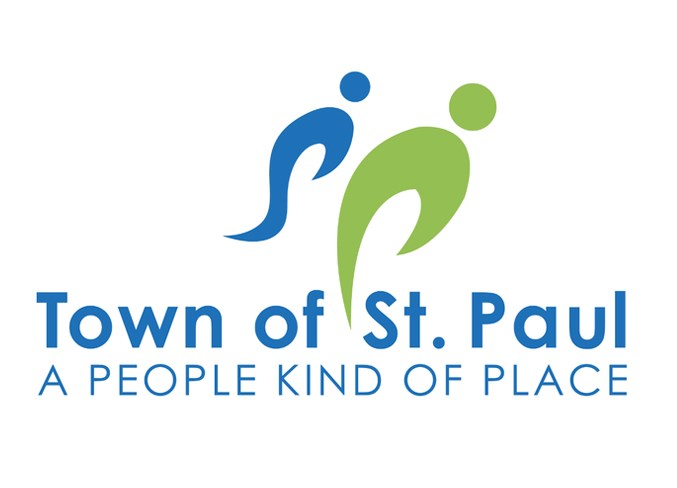ST. PAUL – On May 13, the Town of St. Paul council discussed the potential impact of the Alberta government’s Bill 20 to municipal elections, during its regular council meeting.
Bill 20, introduced on April 25, proposes several changes to the way municipal elections and operations are conducted, prompting concerns among local officials.
During the meeting, Aline Brousseau, the Town’s Director of Planning & Legislative Services, presented the key aspects of Bill 20 and its potential implications for the 2025 municipal election.
She said there are some good points, including how the bill proposes to mandate recounts if requested by a candidate if the vote margin is within 0.5 per cent of the total votes.
“Administration hasn't had the time to dive into all the specific changes,” Brousseau explained, “But there are a few areas of concern that council should be aware of.”
This includes how the bill would allow the provincial cabinet to amend or repeal municipal bylaws. Brousseau said it is unclear how this would work and to what extent this authority would be used.
Voters List
One of the other major concerns she highlighted includes the introduction of a voter’s list. Historically, St. Paul did not have a voter’s list.
“We would essentially need to start from scratch,” said Brousseau, adding that while the costs and logistical challenges of creating and maintaining a voter’s list are currently unknown, it is expected to be significant.
One option would be to get a copy of the voter’s list used at the provincial and federal level, but that possibility is uncertain.
Some good and some bad
Bill 20 also proposes prohibiting the use of electronic tabulators.
During the introduction of the Bill on April 25, Alberta Municipal Affairs Minister Ric McIver said, “Eliminating the use of electronic tabulators will give confidence to Albertans that their votes are being counted correctly and bolster their trust in the methods and results of local elections.” He said during the announcement that he never questioned the integrity of voting machines, but he heard concerns from Albertans.
During council discussions, Miller said electronic tabulators could alleviate volunteer shortages in smaller municipalities. However, if this option is removed, it could potentially complicate the election process.
Councillors also expressed mixed feelings about the bill, with Coun. Nathan Taylor agreeing that there are good parts about the legislation.
He noted that having a voter’s list is not a bad idea, but it would cost municipalities a lot of money to create those lists.
“And there are also some things that we disagree with,” added Taylor.
One example is on how the bill would allow councillors to recuse themselves for real or perceived conflict of interest when discussing a motion or an item. Taylor is concerned that this will affect the voting behaviour of elected officials.
Asked for clarification in a follow-up with Lakeland This Week, Taylor said, “[Elected officials] don’t have to put their skin in the game.”
He explained that currently, councillors must vote on all issues unless there is a pecuniary conflict of interest - meaning, that they must recuse themselves only when an agenda item or a motion directly affects their financial interests or those of their immediate family, or when they missed a bylaw public hearing, for example.
Aside from that, “Councillors must vote on everything,” explained Taylor.
But with Bill 20, councillors could recuse themselves not only for pecuniary conflicts, but also perceived conflict of interest, “Not a perceived pecuniary,” which could mean councillors avoiding tough votes, he said.
“So, in a general meeting, I can't say ‘I don't really want to vote on this issue, because it’s a contentious issue, and I'm going to make somebody mad if I vote this way so I’m not going to vote on this.’ You can't do that. You have to vote unless it is a pecuniary conflict,” said Taylor.
Political Parties
The bill also proposes changes to the Local Authorities Election Act (LAEA), which includes allowing political parties at the municipal level. The Alberta government plans to pilot this in Calgary and Edmonton for the 2025 municipal elections, and potentially expand political parties to all municipalities by 2029.
Taylor said he is concerned that this will make municipal politics a stepping ground to provincial politics, such as the potential of a local politician satisfying the wants of their political party rather than the satisfaction of their residents, so that they will be allowed to run for a higher office.
He said that if municipal councils have many councillors, like maybe 20, then political parties might make sense. “But we’ve got seven councillors... so what’s the point?” he questioned.
“It's important to say from the elected officials’ perspectives, that there are some good things in this dialogue. There’s just some unknowns and some things that we disagree with,” said Taylor.
Timeline
During the meeting, Miller also voiced concerns about the timeline for the bill's approval, with the provincial government aiming to pass it before the end of the spring session on May 30.
“It's not a lot of opportunity for feedback,” she said.
Following discussions, council decided to send a letter to MLA Scott Cyr, voicing their concerns.



